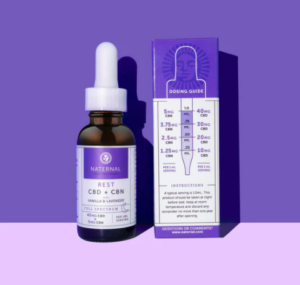
Dr. Simonds hosted this Ask Me Anything Live Show and answered submitted questions about carbs and exercise, sleep and weight loss, CBD, stimulus narrowing, keto, and more. Our co-host, Michelle Kennedy, NP-C is out on vacation and will return for the next show.
Q: I exercise heavily 4 times a week. Do I need to add some carbs into my diet and if so, what type of carbs?
A: This is such a great question! If you haven’t been on a low-carb diet for very long and you start exercising, it’s best to ease into it. Your body will begin drawing the glycogen (glucose) stores from your liver and muscles that will power your workouts. Eventually, the glycogen stores will empty, and then you will begin burning fat. If you’re not yet keto-adapted, then you may hit a wall at this point. Keto-adaptation is the process your body goes through on the diet as it changes from using primarily glucose for energy to using primarily fat.
When you do exercises that have a lower intensity such as walking, you tend to burn through glycogen stores more evenly. When you start adding in more high-intensity workouts, this is when you may run into a problem. This is where we may recommend additional carbs, especially right before or immediately after high-intensity exercise. Immediately after high-intensity workouts, your body is going to want to replenish the depleted glycogen stores. By having a slowly digested carbohydrate such as half a green apple with peanut butter, your body is going to take the sugar that’s in there and restore it as glycogen. It’s not going to promote a fat storage response. So, if you’re doing heavy exercise 5 days a week or more, you may find that you’ll need additional carbs during the day to not feel completely exhausted. The key is to avoid carbohydrates that are going to skyrocket your blood sugar such as candy, soda, etc.
Q: What is stimulus narrowing and how does it apply to losing weight?
A: Stimulus narrowing is the idea that a broad variety of food acts as stimuli and narrowing down your food choices helps you gain control. We tend to like a variety of foods and we have all these different stimuli out there. This can be a problem, even with healthy food. The idea of procuring all of your choices, eating them, and selecting different foods leads to a food-centric mindset. This is where all you think about is food. And this was found during evolution times when you had to eat to survive and there wasn’t an abundant food supply. In this scenario, it’s only natural to think about food all of the time. They were eating to put weight on. But, in the U.S. there is an abundance of food, which leads to excess consumption, whether it’s healthy or unhealthy. No matter the food, you can dwell on it to the point that you build your life around it and you’re eating all of the time. This leads to weight problems. Part of it is dealing with this mindset. The idea of stimulus narrowing is removing all of that excess and narrowing your food choices. Removing a lot of your food choices and limiting the variety is a great strategy to help with weight loss.
Q: What role does sleep play in weight loss? And, do you have a favorite sleep supplement?
A: A lack of sleep can absolutely have a negative effect on your weight. As a former ER doctor, Dr. Simonds worked night shifts for many years and it negatively affected his weight.
The REM sleep cycle is the deepest stage of sleep you experience and is directly tied to your ability to lose weight. If you’re not getting enough REM sleep, then what happens is you never feel quite rested. As a result, your adrenal glands are also making an abundance of cortisol and the insulin will also parallel that. This leads to being in a fat storage mode and an increase in cravings throughout the day. This negatively impacts your metabolism and endocrine situation, which results in difficulty in losing weight. You may even be doing all of the right things, but if you’re not getting enough sleep you’ll find it really hard to lose weight.
Read our blog: SWEET DREAMS: HOW TO SLEEP BETTER, LOSE WEIGHT, AND LIVE LONGER, BY MARK HYMAN, MD
We’re a big fan of natural aids that may help increase REM sleep. Melatonin and Tylenol pm may be helpful for some patients. When choosing a natural sleep aid, it’s important to find something that will help with sleep but will not leave a groggy feeling in the morning. CBD Rest by Naternal is great for this! It contains the same ingredients as the full-spectrum CBD but also contains additional CBN, the oil in the hemp plant that makes you feel relaxed and helps with sleep. A gummy form will be available soon and currently, it’s available in an oil form at both of our office locations. Taken a half-hour before bedtime allows you to fall into a deep sleep quickly and return to sleep swiftly if you wake up in the middle of the night. You also don’t have to worry about experiencing any type of “high” effect with CBD. It allows you to experience a good night’s sleep, which may also help with weight loss.
We’re going to offer a special soon. Make sure to check your email for details!
Q: How can I teach myself to only eat when I’m hungry? I have a habit of snacking throughout the day, even when I’m full.
A: It’s important to recognize the difference between psychological hunger and real, physical hunger. And from a behavioral standpoint, how do you bring the psychological hunger under control. Real hunger is when your blood sugar may be low and you haven’t had enough to eat in a certain time period, which leads to weakness and an empty feeling in your stomach. This is when you should absolutely eat something. On the other hand, psychological hunger is when you simply crave something and is often associated with emotional eating, and boredom eating. Examples are eating at night after dinner, such as snacking during a t.v. program and can even happen throughout the day.
It’s important to ask yourself if you’re experiencing real, physical hunger, or psychological hunger. This is also where stimulus narrowing can help. Taking out all of the stimuli in the environment by narrowing your food choices can be a powerful tool. A concept during Alcoholics Anonymous is a great example of stimulus avoidance. Recovering from addiction is similar to recovering from food. For example, a recovering alcoholic doesn’t browse a liquor store or sit at a bar. They completely avoid these types of situations during recovery to avoid temptation and avoid being triggered. When losing weight, it’s best to keep the foods and stimuli out of your environment completely that may trigger psychological hunger.
Q: What would you say is the biggest weight loss tip you tell patients?
A: We have a lot of tips that we tell patients and it’s really hard to narrow it down to just one! We do have a couple that comes to mind, with the first one being that the finish line is the grave. In other words, weight loss is a long-term process with many ups and downs along the way. You’re in it for the long term and can’t beat yourself up if you have a setback. It’s important to pick yourself up and get back on the wagon immediately.
The next tip is you’re never going to get a positive result with a negative mindset. Think positive things about yourself.
Finally, long-term weight loss medications may be necessary to make weight loss a reality.
Q: I’ve decided to restart the keto diet. How can I avoid headaches and fatigue in the beginning?
A: Low sodium levels tend to be the cause of side effects. We suggest ingesting a dissolved bouillon cube in hot water twice a day to keep sodium levels even.


